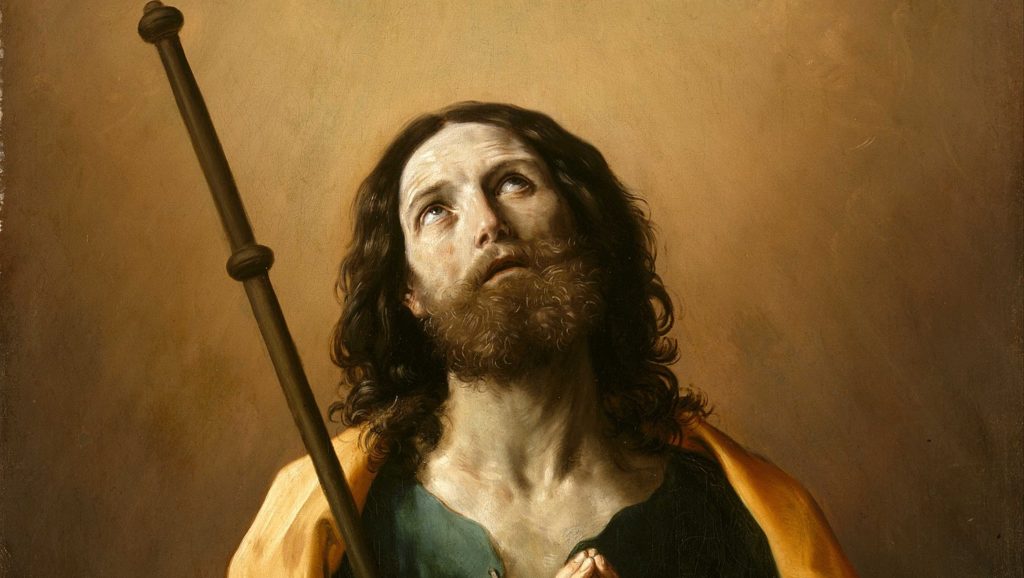If you’ve spent time in Catholic circles on social media, you’ve seen photos of sweaty, dusty people walking the Camino — the pilgrim way to Santiago de Compostela in Spain. Almost half a million complete the trek every year, and Americans make up the largest contingent, second only to the Spaniards.
According to tradition, Compostela is the final resting place of Santiago (St. James the Apostle). And, since ancient times, Christians have made the journey to honor his memory and ask for his intercession.
This year, his feast, July 25, falls within the term of this issue of Angelus. I have never hiked the Camino. But perhaps you and I can together make a “Way” to St. James through the Scripture.
He was the son of Zebedee and brother of John. James was originally a Galilean fisherman, and Jesus called him, along with his brother, while they were in a boat with their father (Matthew 4:21).
Until that moment, James probably considered himself a disciple of Jesus. He followed the teaching of this particular rabbi. But now the Master was calling him to something greater. The Greek word apostolos, from which we get “apostle,” is likely a translation of the Hebrew shaliah. And we don’t have a precise match for that word in English. It means “emissary,” but not in the sense of a glorified messenger. A shaliah bore not just a message, but the authority of the one who sent him. In the “Mishnah,” the rabbis declared that “a man’s shaliah is as himself.”
Indeed, Jesus thought of his own incarnation in such terms, and he compared his sending of the apostles to the Father’s sending of him into the world: “As the Father has sent me, even so I send you” (John 20:21).
James had a sense of the privilege of his calling, and both he and John responded with zeal (Mark 10:37-39 and Luke 9:49, 54). They felt they were ready to do anything for Jesus.
The Master showed affection for them in many ways. He gave them a nickname: “Sons of Thunder.” More significantly, James and John were, with Peter, members of the trio of disciples who accompanied Jesus at special moments. Only those three were present to witness the raising of Jairus’s daughter (Mark 5:37). Only they were on site for the Transfiguration (Mark 9:2). And only they were called apart to pray with Jesus during his agony (Matthew 26:37).
Among the elite, then, he was part of a greater elite. He is known in tradition as “James the Great” to distinguish him from the other apostle named James, who was perhaps younger or smaller.
But his true greatness lies elsewhere. Of all the apostles, he was the first to prove himself willing to “drink the cup” of Jesus’ suffering. He was beheaded at the command of King Agrippa of Judea in A.D. 44. His death is the only martyrdom of an apostle reported in the New Testament (Acts 12:2). In time, his relics were moved to Spain.
If we cannot make it to Compostela this year, let’s honor the apostle in our hearts and imitate him for his zeal.

